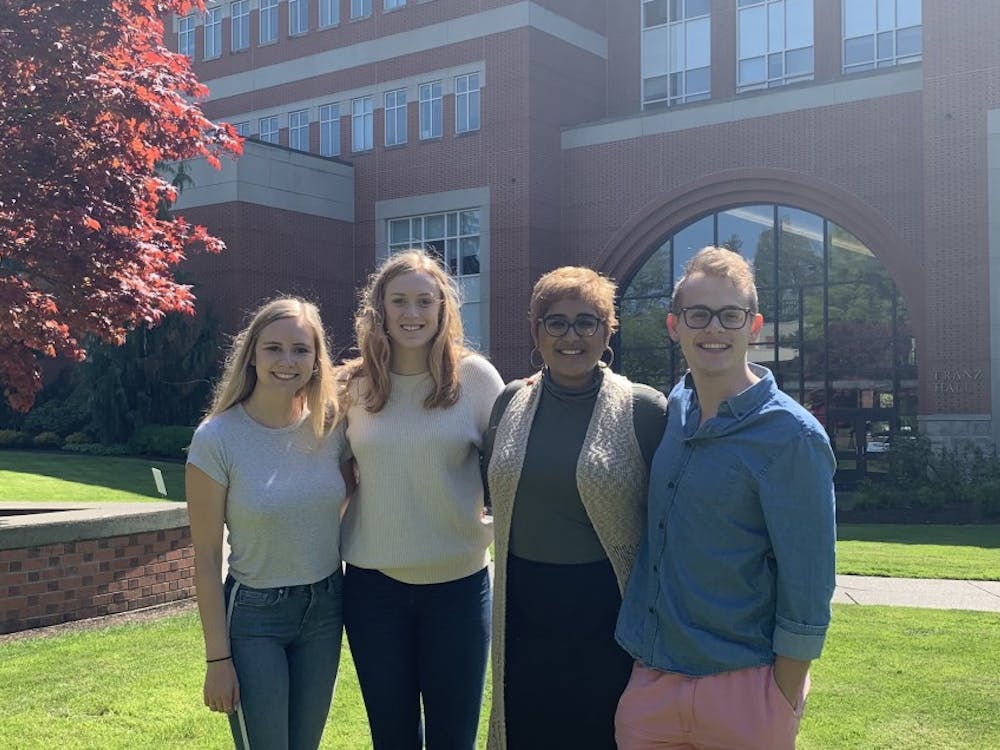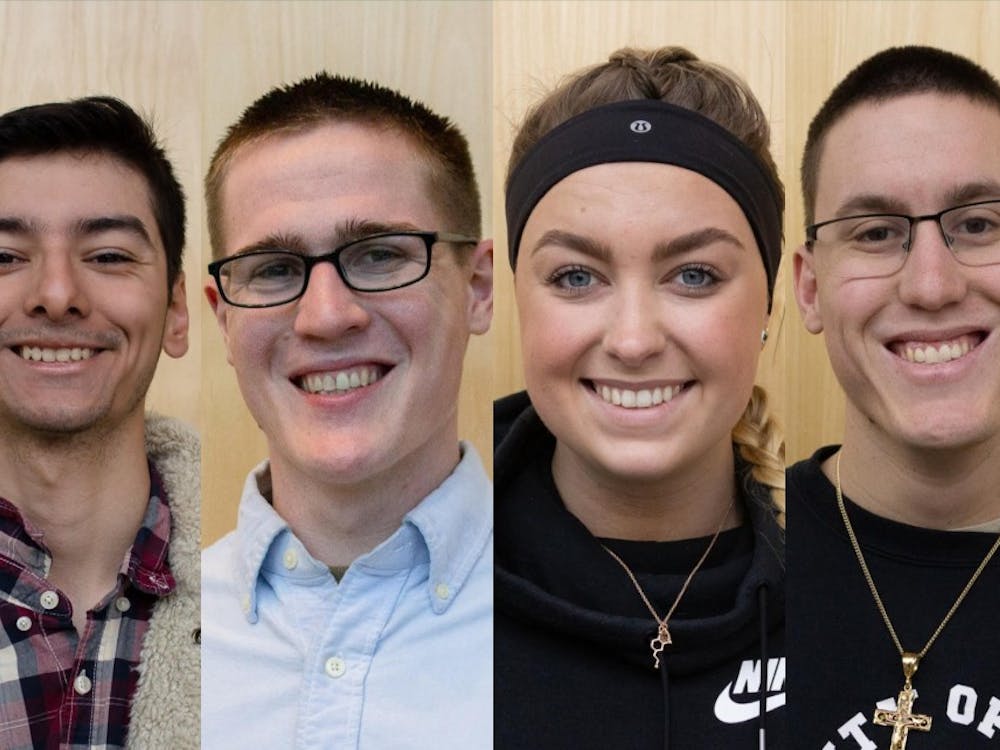Many college students can attest to the fact that there is always so much homework to do. Even though some majors and minors require more attention than others, the pressure to succeed in college weighs on every student’s shoulders. At the University of Portland, academic success is not only expected but required. There are 40 undergraduate programs, 18 graduate programs and more than 1,300 courses at the University of Portland. UP has been named one of only 14 schools nationwide to be a top producer of both student and faculty Fulbright awards.
Along with being a rigorously academic school, the University of Portland also identifies as a Catholic college, prioritizing the development of the human person and their faith. However, there seems to exist a discrepancy of values between academic success and a well-rounded life and faith of an individual.
Being a college student in and of itself is a challenge. From meeting new people to seeing new things, the everyday lives of students are always chaotic. In such a busy atmosphere, it can be overwhelming at times to juggle the tasks associated with being a student at the University of Portland. The university’s goal of developing prosperous people of the future is carried out by the professors and the workload they assign to their students. Certainly, each course provided by the university requires a specified amount of attention. This attention is dependent on an individual student’s understanding of the material. The considerable load of homework increases throughout the year as classes become more intense and professors become more strict. Therefore, it is no surprise that there is a direct correlation between the quantity of homework and the mental and physical health of a student.
Because the goal of meeting deadlines is ingrained in the minds of students, they can become too focused on finishing homework to the point where they neglect or devalue other personal needs, such as eating and sleeping. When students develop poor eating and sleeping habits, their physical health declines along with their academic performance. A student’s physical health is essential because it can also affect a student’s mental health. According to a Stanford University study, 56% of students said that homework is a primary source of stress.
These consequences that students face with too much homework strikingly do not align with Catholic values on the human person. In the Bible, Corinthians 6:19-20 reads, “Do you not know that your bodies are temples of the Holy Spirit, who is in you, whom you have received from God?” (Corin. 6:19-20). In this verse, the value of self-care is signified. Similarly, embedded within the University of Portland’s mission is the significance of the development of the whole person.
In further developing the whole person, the Health and Counseling Center at the University of Portland stresses the overall physical, emotional, spiritual and mental well-being of each individual, and that they also realize the impact health has on personal and academic success. So, why are Catholic school systems maintaining academic practices that do not support a student’s health? These practices seem to instill the idea that success is more important than one’s well-being.
The time allotted to too much homework also does not align with the Catholic emphasis on family. Catholic Church teaching says that the family is the center of social life and, therefore, plays a vital role in fostering the well-being of each member of the family. The load associated with homework can take priority over family for students at the University of Portland. With many students living away from home, communication with family can only be through phone calls and video chats. However, too much homework can take time away from making those late-night phone calls with a parent, sibling or other family members.
Similarly, the importance of socialization and time with friends tends to take a back seat when it comes to homework. Because students are overwhelmed with finishing homework, they consequently do not have time for family and friends. For example, there have been days where I could not call family or be with friends because I had too much homework. As a Catholic college, the University of Portland should prioritize the value of family along with academics. However, this Catholic teaching cannot be practiced in an education system that continues to drill students with too much homework.
Guided by the Holy Cross Congregation, the University of Portland’s stress on the importance of faith is sadly overshadowed by academic strictness. The founder of the Holy Cross Order, Blessed Basil Moreau, CSC, said, “The mind will not be cultivated at the expense of the heart.” In other words, the growth of faith should not be hindered for the growth of knowledge.
The university expresses that they have a commitment to educating the hands, heart and mind to form the whole person; but if the hands and mind are fully wrapped in academics, then there will be less time and space for faith formation. For instance, I have had to miss Mass multiple times because of assignments and projects. Consequently, I have noticed a decline in the strength of my faith. In this case, and many others, faith is placed after academics. This stunts the growth of a student’s faith while growing a student’s knowledge.
The principle behind educating the future while enlightening the spirit is not expressed with equal importance. The University of Portland, as a Catholic college, aims to develop both a student’s intelligence while fostering a student’s faith; however, it fails to prioritize the latter. Although academics play a crucial part in succeeding in the workplace, it is faith, family and friends that are some of the most crucial aspects of one’s life. Once the school system takes a step back to realize what is truly important in a student’s life, then students will be happier and healthier.
Sandra Piedad is a freshman undeclared major. She can be reached at piedad23@up.edu.








